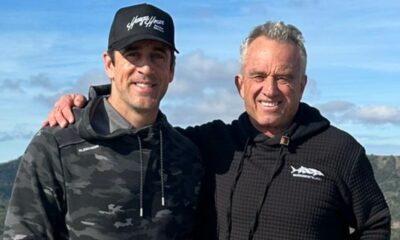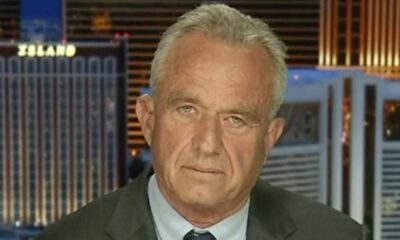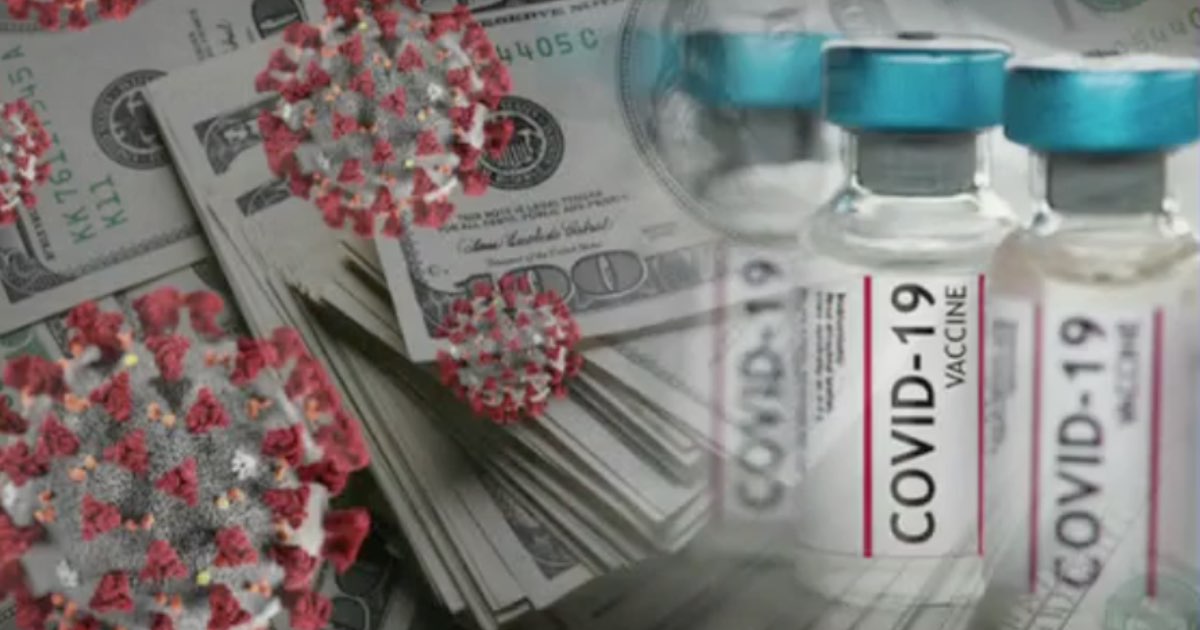Health
RFK Jr. Slams U.S. Health System: ‘We’re the Sickest Nation on Earth’
Robert F. Kennedy Jr., the newly confirmed Secretary of Health and Human Services, sat down for an exclusive interview to discuss his vision for the department and his plans to reform the nation’s health policies. In a conversation that touched on faith, addiction recovery, government reform, and public health, Kennedy emphasized a holistic approach to tackling America’s challenges.
A Spiritual Crisis Alongside a Health Crisis
Kennedy began by highlighting the deep connection between America’s health crisis and a broader spiritual crisis. He pointed to a growing sense of disconnection, particularly among young people, many of whom feel alienated and without purpose.
“We’re not just in a health crisis, we’re in a spiritual crisis,” Kennedy stated. “A whole generation of kids feels alienated, dispossessed, and in an existential crisis—not just because of their health, but because they lack a sense of usefulness, effectiveness, and community.”
He cited troubling statistics, including that 77% of young Americans do not qualify for military service due to poor health, linking this to rising chronic disease rates, depression, and addiction. According to Kennedy, public health cannot be improved without addressing these broader social issues.
Addiction and the Path to Recovery
As a recovered addict himself, Kennedy spoke passionately about addiction and the importance of a spiritual realignment in overcoming it.
“Most addicts feel disconnected. They withdraw from their communities, which leads them to jails, institutions, or worse,” Kennedy explained. “The process of getting sober is a process of reconnecting to community.”
His personal experience with recovery, combined with his belief that overcoming addiction requires more than just medical intervention, has shaped his approach to public health. Kennedy believes policies should focus on building stronger community support systems and creating a sense of belonging for those struggling with addiction.
Challenging the Pharmaceutical Industry’s Influence
Kennedy also addressed criticisms of his qualifications, particularly from Senate Minority Leader Chuck Schumer, who questioned his lack of experience in government health administration. Kennedy countered by arguing that the traditional qualifications Schumer pointed to are part of what has led to America’s current health crisis.
“We are 4.2% of the world’s population, yet we buy 70% of the pharmaceutical drugs on Earth,” Kennedy said. “We spend two to three times what other countries pay for healthcare, yet we have the worst health outcomes.”
He made it clear that under his leadership, health policy would not be dictated by corporate interests. “We need a disruptor—someone who won’t let the food and pharmaceutical industries run health policy anymore,” Kennedy asserted. “We are going to turn health policy over to people who actually care about public health.”
Transparency and Reform in Health Regulations
When asked about specific policy changes, Kennedy emphasized the need for radical transparency.
“A lot of what I’m going to do is about transparency—empowering people with real information about what they’re consuming,” he said. He pointed out that the U.S. allows over 10,000 additives in food products, while the European Union permits only 400, and he called for a reevaluation of these regulations.
Critics have compared his stance on food regulations to a “nanny state” approach, but Kennedy rejected that label. “If you want to eat a Big Mac, you should be able to. But McDonald’s should be incentivized to use healthier ingredients instead of harmful seed oils,” he explained.
One of his main targets for reform is the Supplemental Nutrition Assistance Program (SNAP) and school lunch policies, arguing that government-funded programs should not be subsidizing unhealthy foods.
Vaccines and Public Health Accountability
On the topic of vaccines, Kennedy reiterated that his approach is not about banning vaccines but about ensuring transparency and safety.
“We’re not going to take away anybody’s vaccine,” he clarified. “What we’re going to do is provide good science. Right now, we don’t have strong safety studies on most vaccines, and that needs to change.”
Kennedy pointed out that vaccines are the only medical products exempt from standard safety licensing procedures. He cited a 2010 CDC study revealing that the Vaccine Adverse Event Reporting System (VAERS) captures fewer than 1% of actual vaccine injuries, which he described as unacceptable.
Reforming Government Health Agencies
Kennedy also addressed concerns about potential layoffs within the HHS. While he dismissed rumors of a 50% staff cut, he acknowledged that structural changes would be made.
“I’m interested in moving out those who have made bad decisions—those who set flawed nutrition guidelines or engaged in corruption,” he said. “If you’ve been involved in good science, you have nothing to worry about. But if you’re working for corporate interests, you should move out and work for them directly.”
Addressing the Growing Marijuana Debate
Kennedy expressed concerns about the effects of high-THC marijuana, especially among young people, but also acknowledged the consequences of past drug policies.
“Before legalization, about a third of our prison population was in jail for marijuana offenses. That’s something we don’t want,” he said. “But we also need serious studies to understand the impact of high-THC marijuana on mental health.”
Final Thoughts: Unity and Public Service
In his closing remarks, Kennedy stressed the importance of unity and open debate in addressing the country’s challenges. He reflected on his own upbringing, where political differences were discussed openly but with mutual respect.
“I love my family, and I was raised in a culture where we criticized each other and debated, but we still loved each other,” Kennedy said. “That’s what I want for this country—we should be able to disagree without hating each other.”
With his confirmation as HHS Secretary, Robert F. Kennedy Jr. has signaled a major shift in the department’s approach to public health, transparency, and corporate influence. His tenure is likely to challenge long-standing institutions, reshape national health policies, and ignite debates on the role of government in Americans’ lives.























